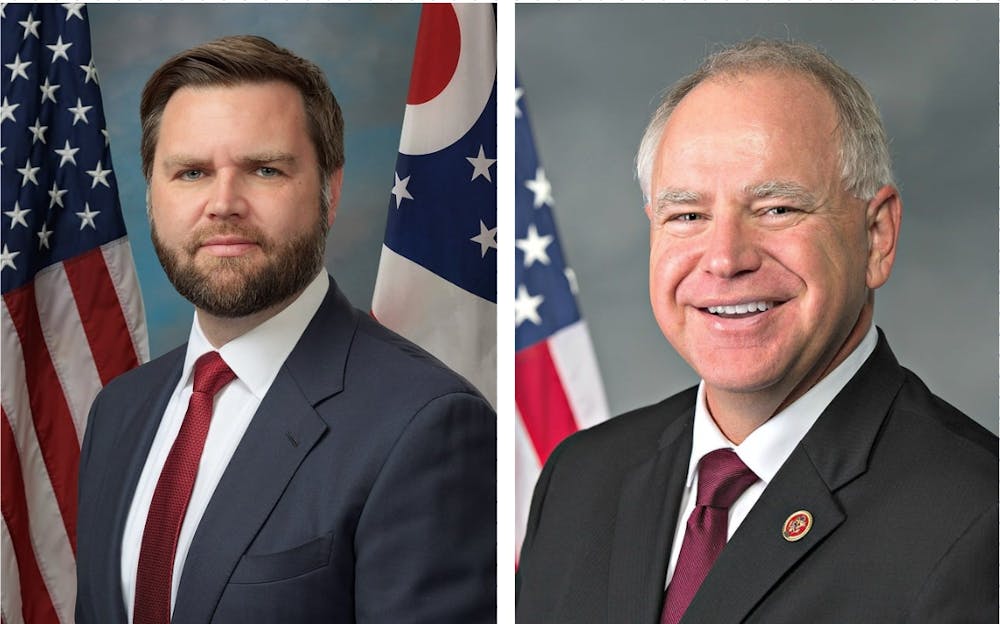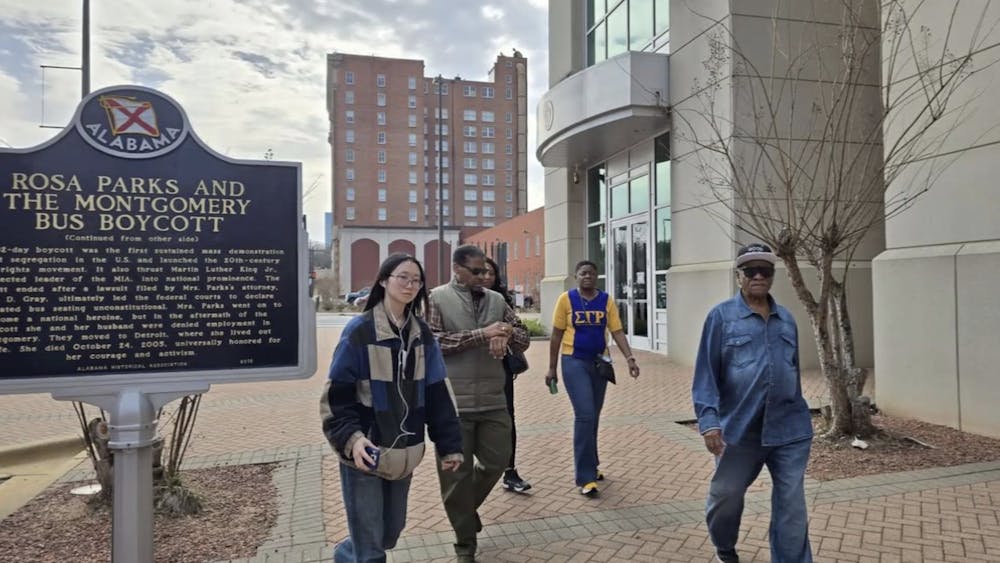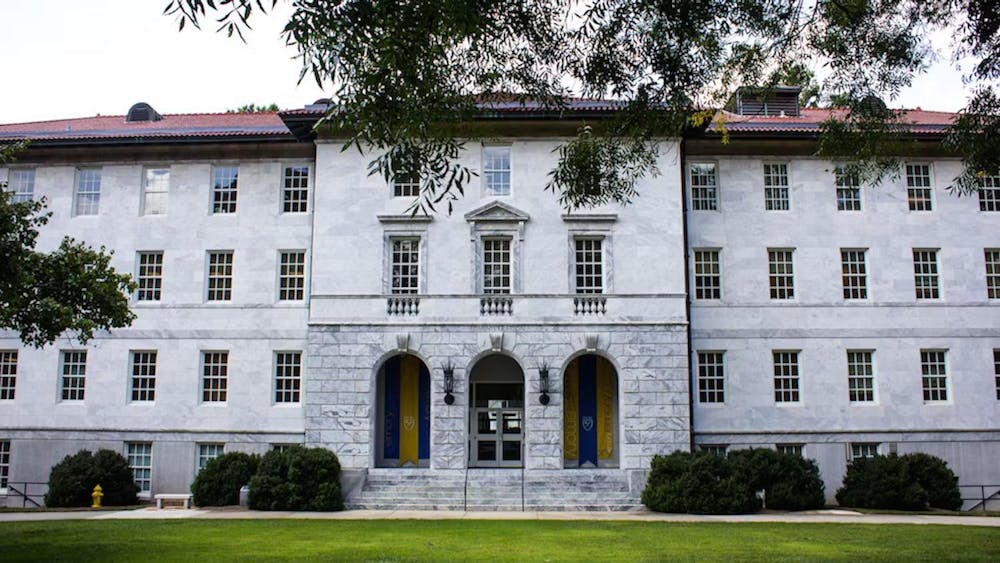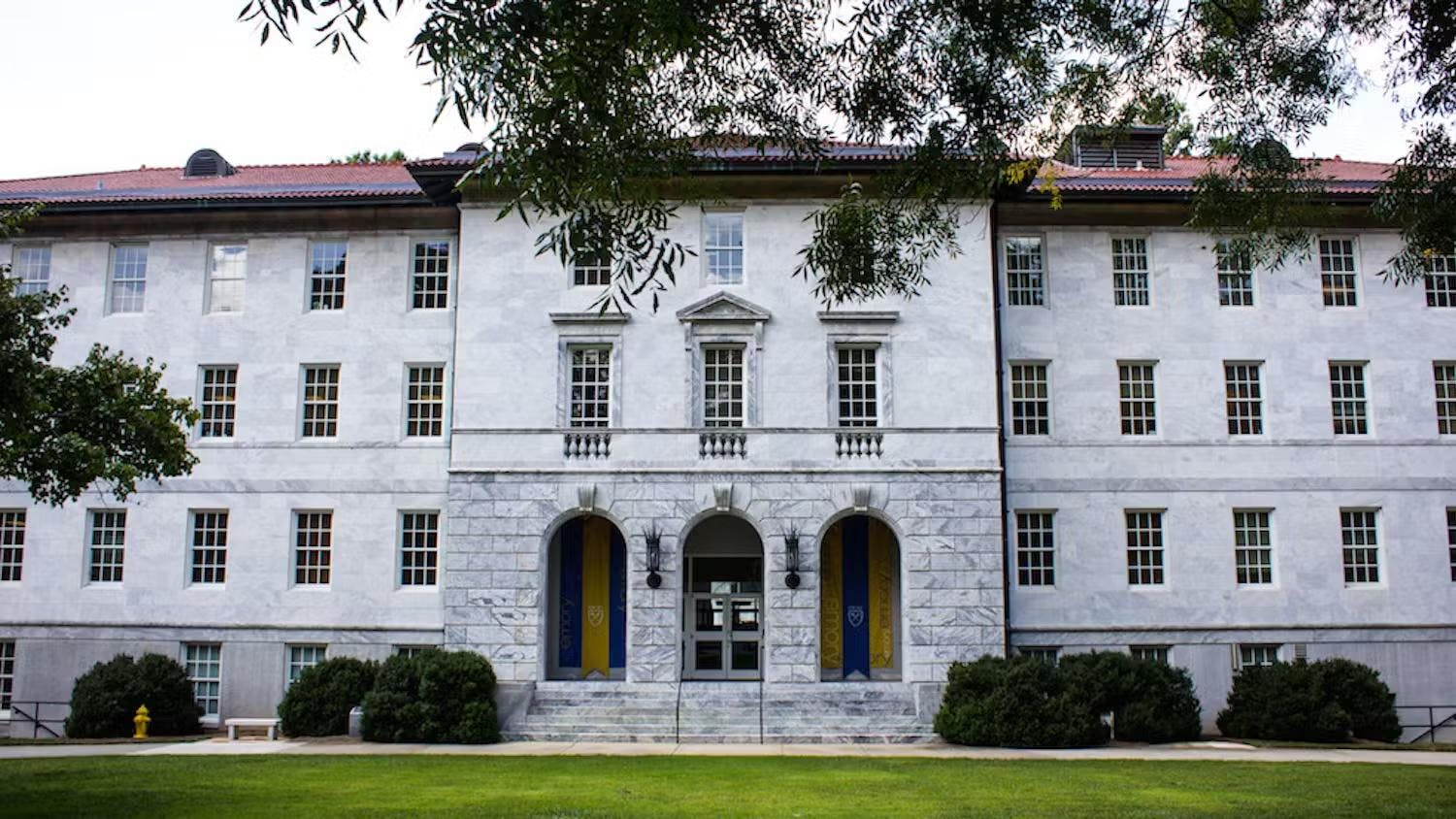Sen. JD Vance (R-Ohio) and Gov. Tim Walz (D-Minn.) squared off on Oct. 1 at the CBS News vice presidential debate. Anchors Norah O’Donnell and Margaret Brennan moderated the discussion, which covered the economy, global politics, climate change, immigration and reproductive rights.
Associate Professor of Political Science Andra Gillespie said the civil nature of Tuesday’s debate provided a stark contrast to Trump’s performance in the presidential debate. Except for a few interruptions and one instance where the moderators turned the candidates’ microphones off, the debate went without significant incident.
“Something that we should aspire to in our politics is for people who disagree with each other to be able to sit down and talk at each other, for the most part, without shouting,” Gillespie said.
The debate started with a discussion of the ongoing war in the Middle East, with Walz arguing that Vice President Kamala Harris was the only “steady” candidate in the election, while Vance cited the lack of major foreign conflict during former U.S. President Donald Trump’s term as evidence that Trump is the best person to handle the conflict.
Despite the largely respectful conversation, there were still clashes during the debate. Walz criticized Trump's belief that climate change is a “hoax” when discussing Hurricane Helene, the deadliest storm to hit the mainland U.S. in almost two decades. Vance struck back, suggesting that Harris doesn’t believe in climate change. Otherwise, she would agree with Trump’s economic policies. Walz then interrupted Vance’s response by mentioning that Trump’s proposed policies did not intend to make any shifts toward renewable energies.
The candidates also disagreed on abortion rights, with Vance arguing that the legality of abortion should be left to the states and Walz citing examples of women who have been injured or died as a result of abortion bans or restrictions to show the importance of legalizing abortions nationwide.
However, Gillespie said that Vance’s argument on abortion came across as “more reasonable” than what people typically associate with abortion policy in the Republican Party.
Furthermore, through the debate, Vance neglected to answer a question about the January 6, 2021, attack on the U.S. Capitol, instead pivoting the conversation to the topic of censorship. When Walz pressed Vance on whether he believed the 2020 election was legitimate, Vance responded that he’s “focused on the future.”
One of Gillespie’s primary takeaways from the night was the contrast between Vance and Trump’s performances during their respective debates.
“JD Vance certainly is capable of being combative, and so it was a question of whether or not he was going to imitate his running mate,” Gillespie said. “He chose not to.”
Even with differences between Trump’s and Vance’s presentations, Gillespie noted that vice presidents don’t usually make or break a ticket.
“Most of the research says that most vice presidential candidates don’t cause enough of a bump to help their partner win, nor are they such a drag on the ticket that they might actually cause a loss,” Gillespie said.
With his presentation of a “softer version of MAGA” during the debate, Vance is more of a wildcard, according to Gillespie. She said Vance risks seeming insincere to those who have already formed an opinion of him based on his statements, including his claim that Haitian immigrants eat their pets and his comments about childless women.
Gillespie said that the race will ultimately come down to voter mobilization, as “most people have already made up their minds about the election.”
According to the Pew Research Center, about two-thirds of the eligible voter population participated in the 2020 election, the highest since 1900.
Gillespie said that the significance of voter mobilization efforts is evident in Georgia, where there are nearly equal registered Democrats and Republicans. However, with significant Democratic voter mobilization during the 2020 elections, the state flipped Democratic.
“You basically have to run and pound the pavement and knock on every door and make every phone call like you think you’re going to lose the election,” Gillespie said.








